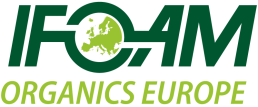The third pressures are on Europe’s ground and surface water, lack of concrete action:

Kathmandu june 4, IFOAM released a Press statement to reduction the pollution in Organic European responses.
BRUSSELS, 4 JUNE 2025 – IFOAM Organics Europe welcomes the European Commission’s Water Resilience Strategy, a necessary European response to the growing water crisis. The acknowledgement of the role of organic farming for water resilience in improving soil health, water retention and reducing pollution is a step in the right direction. However, the Water Resilience Strategy lacks overall ambition and concrete action to effectively restore and protect water resources, specifically from pollution from pesticides.
“The strategy explicitly highlights organic farming as a solution to improve water resilience. By refraining from the use of synthetic fertilisers and pesticides, and fostering soil health and biodiversity, organic farming is a key tool in tackling the water crisis and increase resilience to drought and floods”, said Jan Plagge, President of IFOAM Organics Europe.
However, the Water Resilience Strategy fails to address one of the major threats to Europe’s water bodies: pesticide pollution. Agricultural pollution, including from pesticides, accounts for one third of the pressures on Europe’s ground- and surface water, yet the strategy lacks concrete action to reduce synthetic pesticide use and prevent contamination from harmful substances like PFAS found in pesticides at its source.
“Leaving pesticide pollution out of the European Water Resilience Strategy is a major blind spot,” said Eduardo Cuoco, Director of IFOAM Organics Europe. “We cannot talk about restoring water quality while ignoring the impact of pesticides on our rivers, lakes and groundwater. With serious impacts on health and depollution costs, ranging from 5 to up to 100 billion a year for TFA (acid trifluoroacetic; PFAS residue) alone, it is not enough to clean up pollution, but we must prevent it in the first place.”
To be effective the EU must step up its efforts to address the major sources of water pollution and adequately support solutions like organic farming through a CAP that rewards farmers engaged in sustainability. press statement has published own authentic website.
